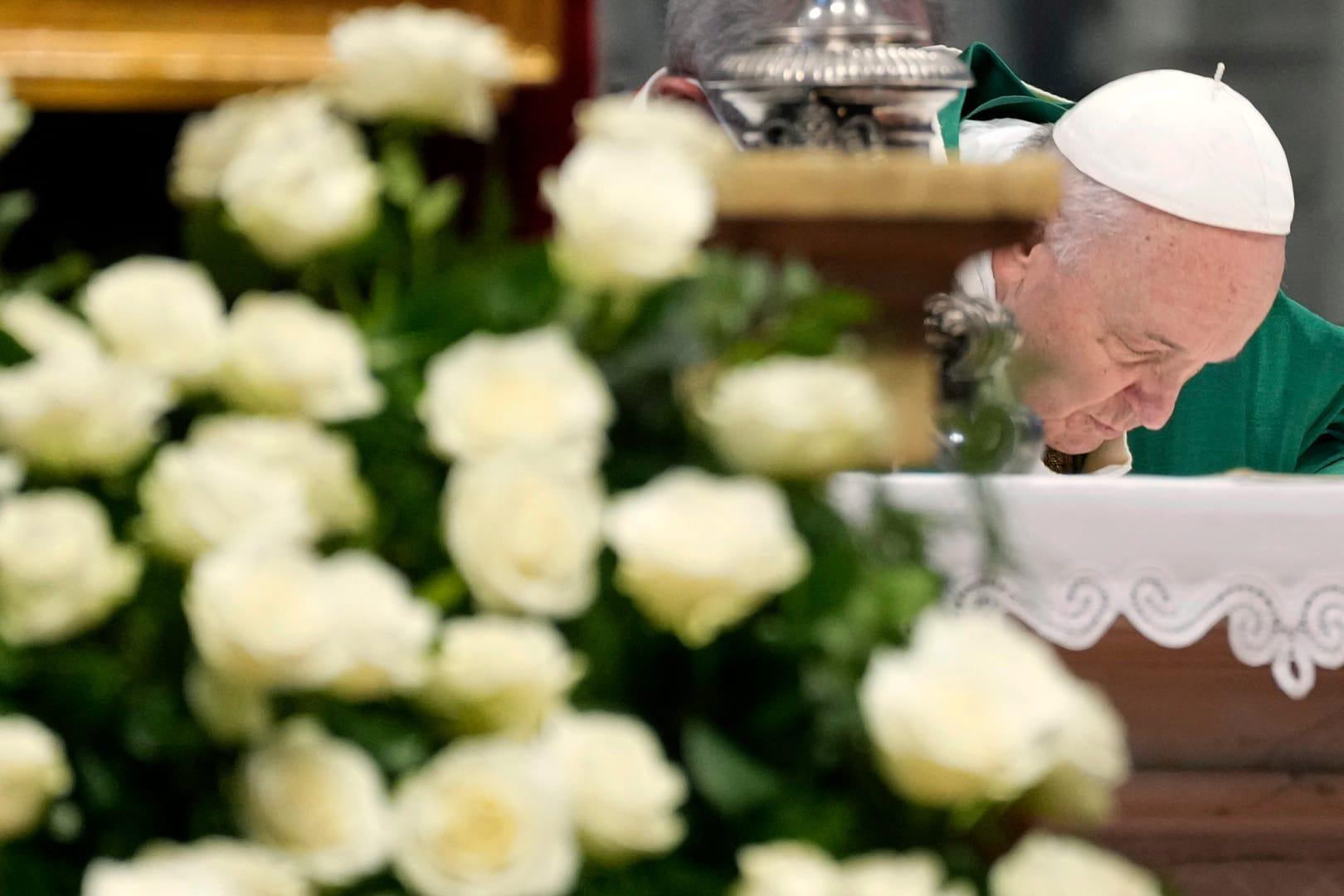As believers walk through Ordinary Time, they are presented with a continual echo of the call of the Lord Jesus to follow him more faithfully and generously. As such, hope is the virtue that is most prominent in this liturgical season. It is hope that helps us to convert, change, and redirect our lives. Our world needs hope. As we seek this virtue, it’s important for us to know what it is, and what it’s not.
As believers, our entire way of life depends on our belief in the Lord’s care for us. We realize such care is manifested most powerfully in his glorious Resurrection, through which he calls us to live with him in eternity. This understanding of God’s goodness, and of our invitation to live forever in heaven, raise some serious questions about our salvation.
How are we saved? What is the process that brings about our salvation?
The Gospels teach us that salvation from darkness and its consequences, and the reward of eternal life in heaven, are found in Jesus Christ. In our baptism and the acceptance of his Lordship in our lives, we find hope for this salvation. St. Paul reminds us that we are “saved in hope.” He writes: “We know that the whole creation has been groaning with labor pains together until now; and not only the creation, but we ourselves, who have the first fruits of the Spirit, groan inwardly as we wait for adoption as sons, the redemption of our body. For in this hope we were saved.”
Since hope is at the heart of our understanding of salvation, therefore, it is very important for us to understand the biblical notion of this virtue. This is pressing since hope has regrettably become a distorted and abused virtue in our society. As such, it’s worth clarifying this virtue and showing why it’s so important in the Christian way of life.
For Christians, hope is always placed in God. We do not hope in ourselves without God, or in human efforts without God’s presence. To do so would be to use hope as a disguise for pride and arrogance. Christians are called to understand that salvation comes from hoping in the Lord and in his divine Providence, which is his care for us in this life and his welcoming of us into eternal life.
Hope is placing a profound trust of our life, existence, and well-being in the hands of God. It is trusting him unconditionally and actively nurturing in ourselves “eyes of faith,” which helps us see his work among us and helps us eagerly long to be with him in forever in heaven.
Our hope in God can help us appreciate the blessings and sorrows of this life. It places them all within a beautiful mosaic of God’s love and care for us. Hope heals our wounds and lifts up our spirits. It strengthens our faith and empowers our ability to love. Hope teaches us to place an appropriate trust in our loved ones and in the good things of this world.
By hoping in God, we rely completely and ultimately on him, especially when we are weak or experiencing pain and suffering. In this radical hope, in spite of the world’s darkness and brokenness, we find an assurance of God’s promises, the power to believe and cooperate with his grace, and the openness that is needed to let the Lord change us for the better and make us fit for the kingdom of God. Truly, it is through hope that we are being saved in Jesus Christ.
We know as believers that our dignity comes from God. We know that we’ve been given a unique identity as his sons and daughters. We readily place our autonomy within the Lord’s divine Providence, which is his care for us in this life. This trust builds up hope in us. Hope allows us to place everything, even suffering and anguish, within the light of eternity.
It is the hope of heaven that strengthens us and refocuses us when pain or turmoil seek to distract us. It is the hope of eternal life that calls us back to an obedience of faith and to the firm desire to give ourselves completely to the Lord.
Hope reminds us that the suspension of suffering or the conclusion of pain in this life are not our final goals and that even these, as beneficial as they can be, must be placed within divine wisdom and must cooperate with the workings of grace which labor to make us fit for eternal life with God.
As we continue through Ordinary Time, we must regularly ask God for the powerful and pressing virtue of hope.
Follow Father Jeffrey Kirby on Twitter: @fatherkirby













